“There is nothing quite so free on earth as living in a large city,” claimed a Wisconsin man visiting Chicago in 1893. A reporter from Philadelphia told of the man’s adventure as he journeyed from downtown to the Midway Plaisance of the World’s Fair and into one of its (at the time) notorious theaters.
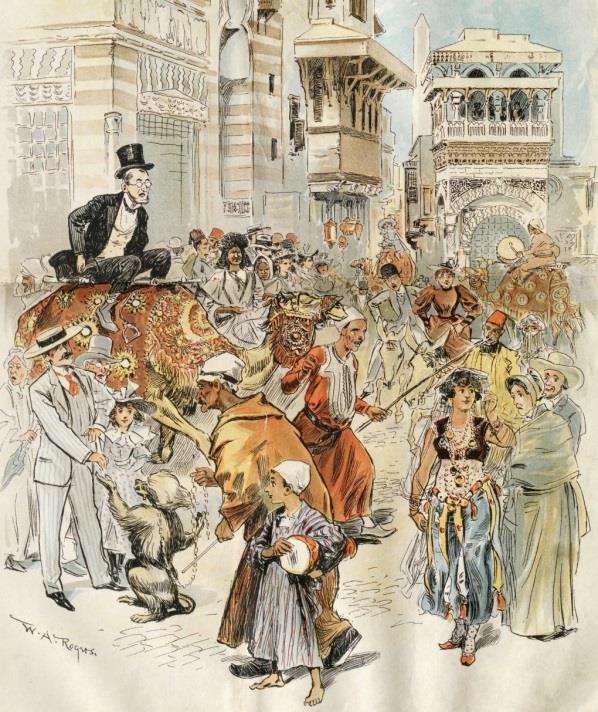
[Image from Puck magazine, July 31, 1893.]
Last night a man who had been attending the Exposition left for his Wisconsin home with very different ideas about Chicago and the Fair than he had when he first started in to do his sightseeing. This man is a very good man. He teaches a Sunday school class and is held up as an example to all the small boys and young men in the town in which he lives. He came to the Fair and brought his wife. For three days he and his wife visited different points of interest most religiously. The fourth day he found himself, in some unexpected way, downtown without his wife. He met a friend, and his friend proposed that they go out to the Fair together and “take in” a few things on the Midway Plaisance.
The good man from Wisconsin had seen some things on the Midway—Libbey glass works and a panorama or two, but not the things that—well, some of the other things. He thought he would like to go. His step became more and more buoyant as they went on their way to the train.
Finally the good man from Wisconsin remarked: “There is nothing quite so free on earth as living in a large city. You can go anywhere you wish and no one is going to stand at your elbow and criticize your movements. Not that one wants to do anything very bad, but it is such relief to feel that you are not accountable to anybody else for your steps. It makes me feel like a boy to get out and have full swing. Give me a big city for fun every time!”
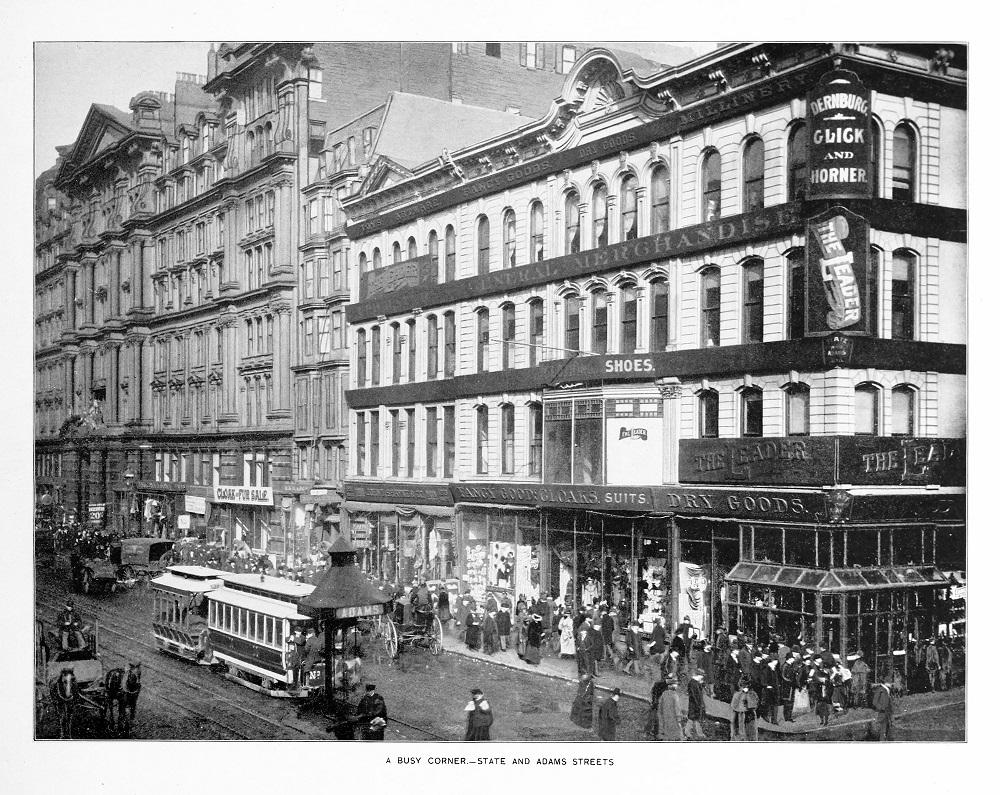
Fun in the big city at State and Adams streets. [Image from Rand, McNally & Co.’s Pictorial Chicago and Illustrated World’s Columbian Exposition. Rand McNally & Co., 1893.]
Just then he turned a corner and almost ran over his wife. She looked startled and uncomfortable, but he was so taken aback that he did not notice her confusion. He managed to stammer out in an idiotic way, which she in her turn did not notice: “Why, where are you going, dear?”
“Oh,” she said, “just down here to meet a friend, and then, I think, we will go shopping.”
“All right,” said he, in a relieved tone. “Good-bye; see you tonight at dinner.”
Each went their way. The good man took out a handkerchief, mopped his forehead, and said: “Um—Chicago’s not such an awful big town, after all.”
His friend agreed with him. They took the “special” to the Midway.
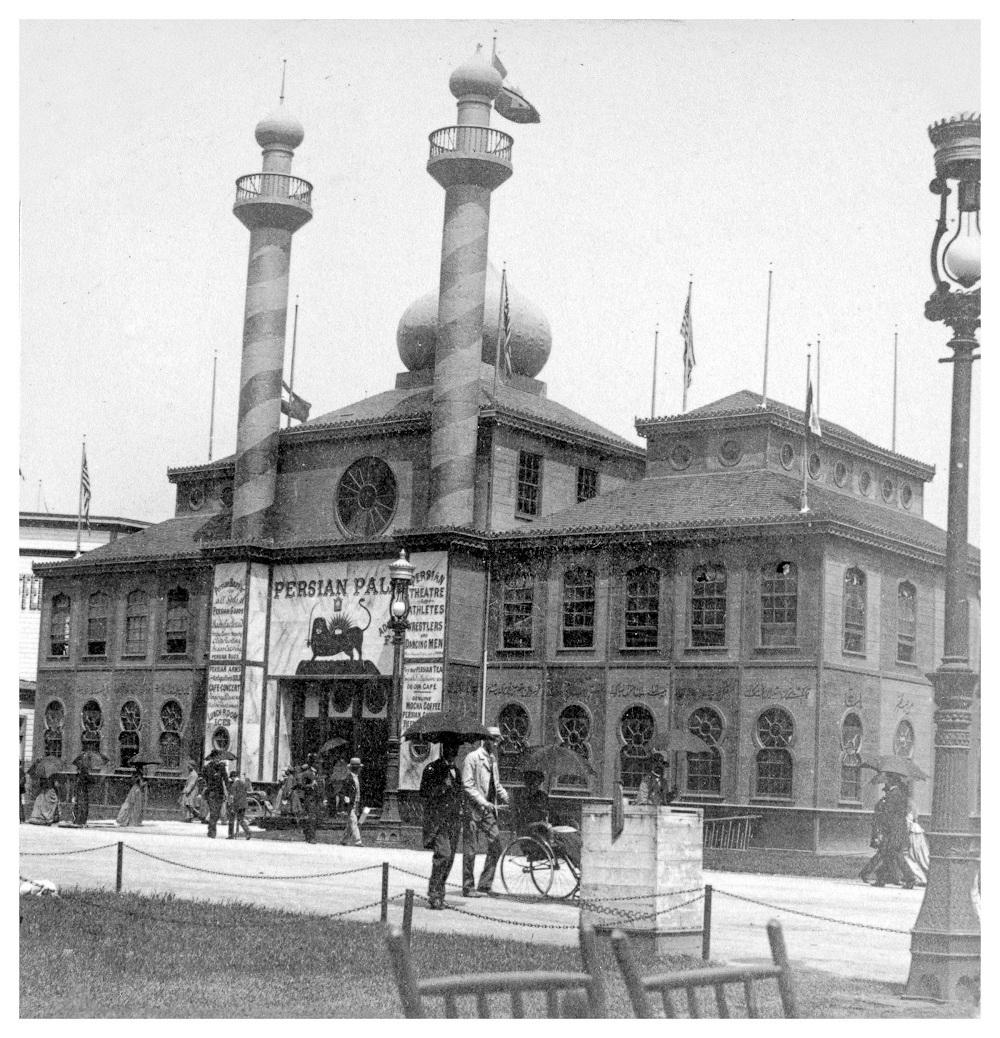
The Persian Palace on the Midway Plaisance featured a restaurant and tea house, a bazaar, and (according to historian Hubert Bancroft) “a special hall … in which are entertainments of a questionable character.” [Image from an Underwood & Underwood stereoscope card, Library of Congress; digitally edited.]
They went to the different villages with the swing of freedom that made the Wisconsin man feel like a blooming youth. They finally settled down to a front row seat in the Persian theatre.
While the fires of censure burn low for the Turkish theatre they make up for it in the forks of flame for the Persian theatre. They stayed until the end. The good man was sort of glad to mix with the crowd in going out. It was alright to go there and get an idea of the dancing and music from the Mohammedan side of life, but he did not want to be judged from the American side, particularly the Wisconsin side. So he tried to lose himself a little in the shadow of other people. He, with his friend, went down an aisle by the wall. As they came to the end where the side aisle meets the cross aisle and the big man in front of him turned to the right in line of the door, he came face to face with someone that looked very familiar. He looked again, and—
There was his wife!
Her head was turned the other way, but before he had time to wish for the protection of the big man again, she saw him. Her friend, with whom she was to go shopping, was with her. The first expression on the face of the husband and wife was consternation. Then indignation, each toward the other. Then amusement, and then each said almost in the same breath:
“Nothing to be ashamed of, anyway.”
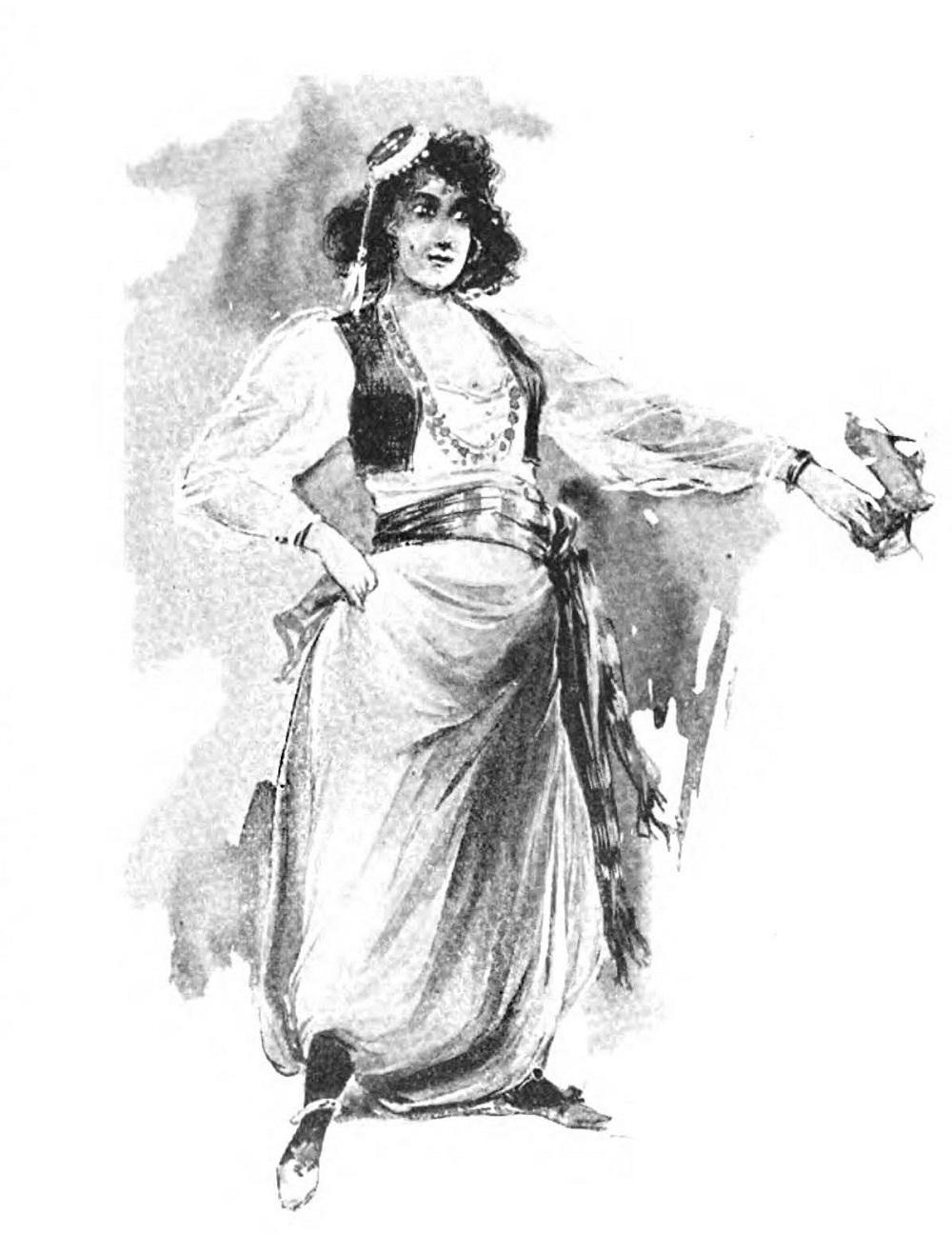
A dancer from the Persian Palace theater. A reporter for the Illustrated American writing about the “Persian Palace of Eros” described the dance performance there as an “exhibition of flagrant indecency.” The couple from Wisconsin disagreed. [Image from the Illustrated American August 12, 1893.]
SOURCE
“Big Bills Must be Cut Heavily” Philadelphia Inquirer Aug. 13, 1893, p. 18.
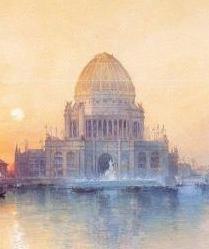
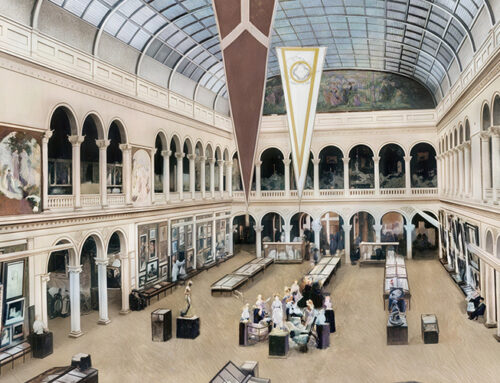
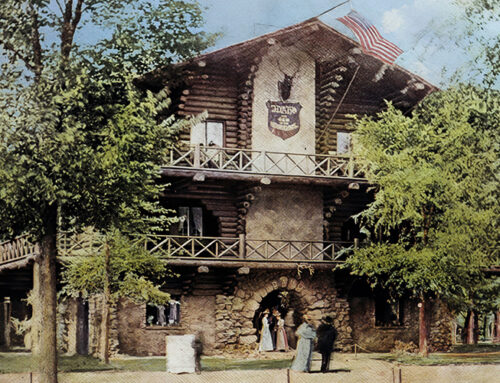
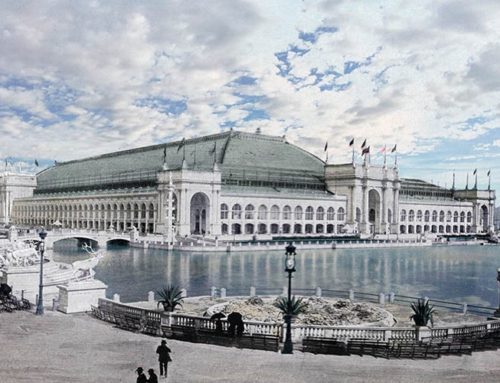
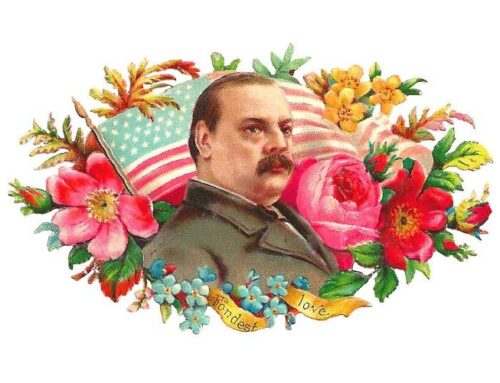

Leave A Comment